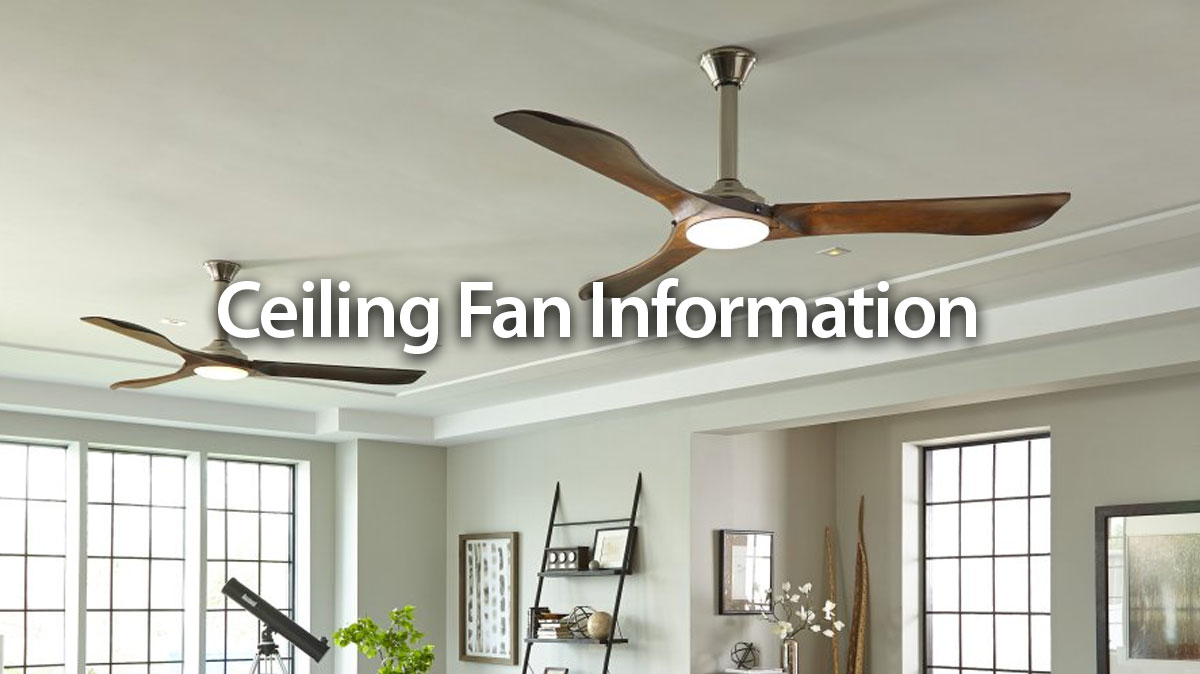Ceiling Fan Information
Frequently Asked Questions
A: The right ceiling fan size will depend on the scale of the room:

SMALL ROOMS |
 MEDIUM ROOMS MEDIUM ROOMSRoom Size: 90-120sq feet Room Type: Small bedroom, Office, Bathroom Fan Size: 38-52” CFM Range: 3500-5000 |
|
 LARGE ROOMS LARGE ROOMSRoom Size: 125-300sq feet Room Type: Kitchen, Dining Room, Bedroom, Living Room Fan Size: 52-56” CFM Range: 5000-8000 |
 GREAT ROOMS GREAT ROOMSRoom Size: 350-400sq feet Room Type: Great Room, Master Suite, Outdoor Fan Size: 56-88” CFM Range: 7000-10000 |
Information provided by Monte Carlo.
A: There are hugger fans (which do not have downrods) and flush-mount fans available for rooms that have low ceilings.
If the room is taller than 8 feet, you will need to consider using a longer downrod (refer to the chart below):

A: During the warmer months, set the blades to rotate counterclockwise which will push cool air down to the floor, making the room feel cooler. During the colder months, set the blades to rotate clockwise, which will help push cold air upwards, thus making the room feel warmer.
A: When you use the counterclockwise method during the summer, and the clockwise method during the winter you will be able to save on air conditioning and heating costs respectively because you are able to recirculating the air in the room to feel more comfortable, eliminating the need to adjust the thermostat.
A: You can determine the airflow of a ceiling fan by looking at the cubic feet per minute (CFM) measurement. A higher CFM will indicate that the fan is able to move more air around.
A: Use a sloped ceiling canopy if the ceiling is angled at 25-45 degrees, which will help the fan hang straight.
Information provided by Monte Carlo.
A: DC motorized fans are believed to be more energy efficient than AC motorized fans, requiring less energy to run the motor. DC motors are also more compact, quiet, and can quickly adapt to changes in speed or direction.
However, AC motorized fans are also considered energy efficient because they only require a small wattage. AC fans are believed to be more affordable, and offer more control options such as pull cord, wall control, or remote control options.

